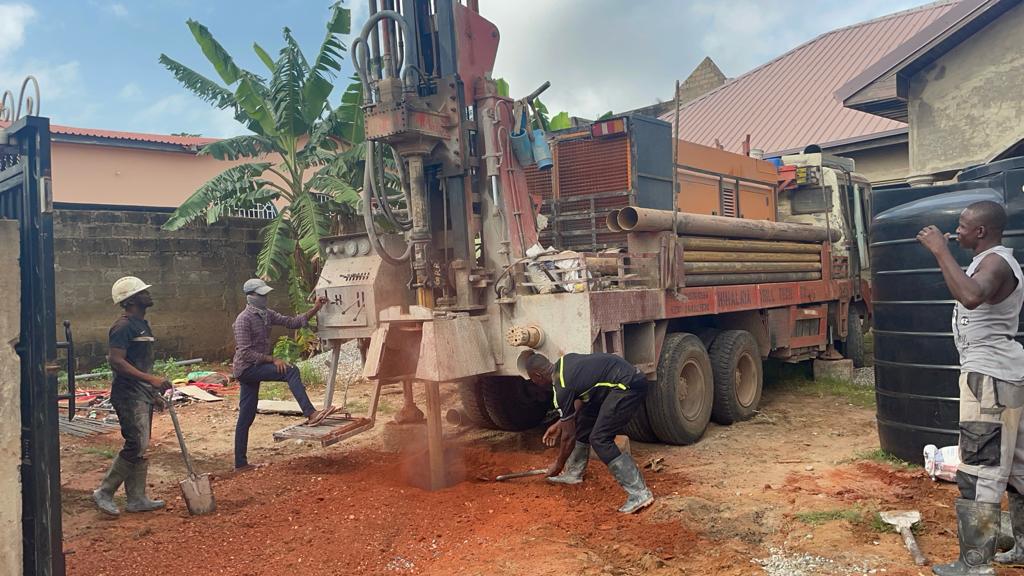This initiative aims to address the vital need for a consistent water supply, particularly in areas facing water scarcity or limited access to safe drinking water.
Site Assessment and Feasibility Study:
- Conduct a comprehensive assessment of the designated site to determine its suitability for borehole installation.
- Engage hydrogeologists to assess groundwater availability and quality.
- Undertake a feasibility study to ensure the practicality and sustainability of the borehole project.
Drilling and Construction:
- Employ experienced drilling contractors equipped with state-of-the-art machinery.
- Utilize high-quality materials for casing and well construction to ensure durability and prevent contamination.
- Adhere to safety and environmental standards throughout the drilling process.
Pump Installation:
- Select and install an appropriate pump system based on water demand and borehole yield.
- Implement energy-efficient pumping solutions to reduce operational costs.
- Integrate monitoring systems to track water levels and pump performance.
Water Quality Testing:
- Conduct thorough water quality tests to ensure that the water meets health and safety standards.
- Install appropriate water treatment systems if necessary to address specific contaminants.
- Regularly monitor and maintain water quality to ensure ongoing safety.
Community Engagement and Training:
- Engage with the local community to ensure their involvement and understanding of the project.
- Provide training on borehole maintenance, hygiene practices, and water conservation.
- Establish a community committee to oversee the sustainable management of the borehole.
Infrastructure and Accessibility:
- Implement proper infrastructure for the borehole site, including secure fencing and signage.
- Ensure that the borehole is accessible to all community members, including those with disabilities.
- Collaborate with local authorities to integrate the borehole into the existing water infrastructure.



